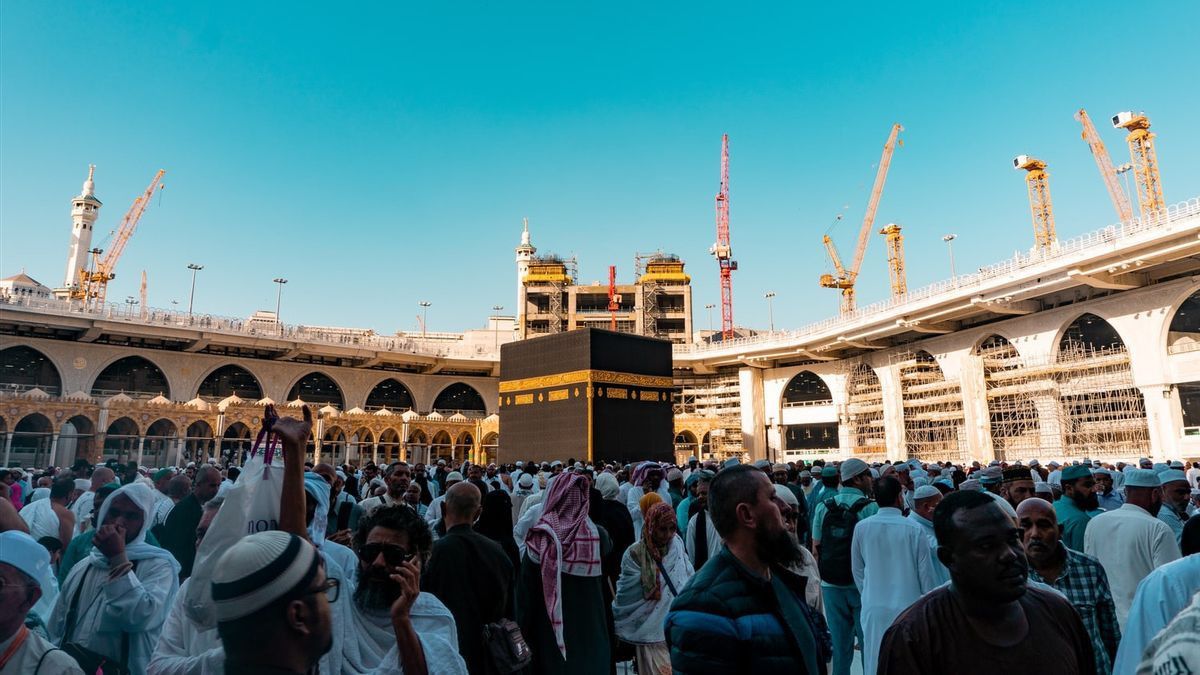JAKARTA - Lack of preparation in the implementation of the 2023 Hajj pilgrimage is the cause of many pilgrims from Indonesia who face obstacles when performing worship in the Holy Land.
As is known, Indonesia's certainty of getting an additional 8 thousand hajj quotas from the Government of Saudi Arabia was only set in early May 2023 ahead of the departure of the first batch of pilgrims. With this additional quota, the total number of Indonesian pilgrims who performed the pilgrimage this year will be 229,000 people.
The number of 229,000 pilgrims is 2 times more than the previous year where Indonesia only received a hajj quota of 100,000 pilgrims. The narrow time is considered the culprit to make a lack of preparation that has an impact on services for Indonesian pilgrims.
"Because the addition of the hajj quota given at a very tight time was not accompanied by the readiness of facilities and services, not only from the Indonesian government but also from the Saudi government, related to Indonesian pilgrims," said the Chairman of the Indonesian House of Representatives, Puan Maharani in her statement, Monday, July 3.
One of the obstacles found in the implementation of the pilgrimage this time is in terms of transportation facilities which had caused thousands of worshipers from Indonesia to be abandoned in Mudzalifah. The delay in the pick-up made the congregation starving and curious in the hot weather.
In addition to transportation, the problem of tents overcapacity in Mina is also a note in the implementation of the 2023 Hajj. Reportedly, there are many Indonesian pilgrims who are forced to rest outside the tent because they do not get a share of the place.
After the ceremony in Arafah, the congregation must experience fatigue. When they arrived in Mina, the tents there were unable to accommodate the congregation. This must be anticipated. Incidents like that should not happen again," said Puan.
A number of things were accused of causing tents in Mina to experience overcapacity. In addition to the lack of service from mashariq as a manager of Hajj services from Saudi Arabia during the congregation in Arafah, Muzdalifah, and Mina, the factor causing pilgrims to sleep outside the tent was the presence of pilgrims who used non-hajj visas.
SEE ALSO:
There are also pilgrims who use non-hajj visas who should not use facilities for pilgrims. The majority of them come using pilgrimage visas via Riyadh, then continue their journey to Mecca or Medina either via domestic and land flights.
These pilgrims are not registered in the official hajj quota, but also take advantage of facilities owned by pilgrims. Not only from the Indonesian people themselves, but also from several other countries. For this reason, Puan asked the Government to pay attention to this phenomenon.
There must be strict supervision regarding this matter. And of course very mature coordination with Saudi Arabia, of all stakeholders involved, including the Saudi government and the mashariq," he said.
Puan assessed that the role of the Government to tighten supervision of the departure of pilgrims from Indonesia is very much needed. Cross-ministerial/institutional coordination must be carried out carefully from the Ministry of Religion, immigration parties, the Ministry of Foreign Affairs, and the Ministry of Transportation (Kemenhub) which regulates the flight departure schedule or airlines.
"This must be an evaluation material. How is the right system so that the facilities for pilgrims are indeed in accordance with their designation," said Puan.
Furthermore, the former Coordinating Minister for Human Development and Culture highlighted the lack of facilities and availability of toilets for pilgrims. Not only from the report of the DPR's Hajj supervisory team (Timwas), Puan also saw for herself how many Indonesian pilgrims were queuing for a long time because of the lack of toilets while in Arafah, Muzdalidah, and Mina.
"The problem of toilets really has to be a concern. Moreover, many of our pilgrims are women and the elderly who really need toilet facilities. Not to mention the cleanliness and comfort. This must be a note," he said.
Puan also emphasized the lack of supporting facilities for the elderly pilgrims. In fact, for the implementation of the 2023 Hajj pilgrimage, as many as 30 percent of Indonesian pilgrims are elderly, which number around 70,000 people.
"In addition to officers having to be reproduced to help elderly pilgrims, special treatment needs to be considered more. Of course, including accommodation and supporting facilities for the elderly. Especially for the elderly with poor health conditions," said Puan.
Puan asked for a fairly in-depth evaluation regarding the implementation of this year's Hajj. Including, said Puan, increasing coordination and cooperation with the mashariq and the Government of Saudi Arabia so that the implementation of the pilgrimage next year and then it can be better.
"So these may be things that we need to evaluate together, with the hope that God willing, next year problems like yesterday will not happen again," he concluded.
The English, Chinese, Japanese, Arabic, and French versions are automatically generated by the AI. So there may still be inaccuracies in translating, please always see Indonesian as our main language. (system supported by DigitalSiber.id)

















